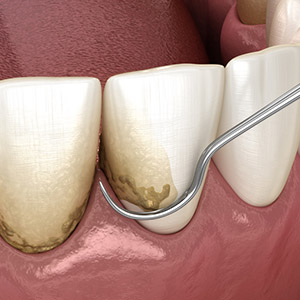Regular dental treatment is beneficial to all, regardless of their oral health. Regular dental appointments are even more necessary if you’ve had periodontal (gum) disease to ensure that your healed gums remain that way.
Gum disease is a bacterial infection caused by dental plaque, which is a thin layer of bacteria and food particles that forms on the surface of teeth. The infection causes gum inflammation, which easily becomes chronic. That’s why gum disease triggers reddened, swollen, and easily bleeding gums.
The infection has the tendency to expand aggressively below the gum line, impacting the bone. Tooth loss can result from a combination of weakened gum detachment from the teeth and bone loss. Nevertheless, by completely scraping both plaque and tartar (hardened plaque) from the teeth and gums, we can avoid the infection. The gums respond and begin to heal when the plaque is removed.
Even with advanced gum disease, the teeth and gums may be returned to good health. However, even if the infection has been stopped, it may resurface. In addition, after you’ve had gum disease, you’re far more vulnerable to another infection. You may need to visit the dentist more often to remain on top of this. These extended appointments, referred to as periodontal maintenance (PM), are a continuation of your care. We will need to see you more often than twice a year depending on the severity of your gum disease: For example, some periodontal patients may need visits every two to three months. When it comes to when you can have your teeth washed, the state of your gums can play a role.
PM visits will involve a more detailed review of the teeth and gums, especially the health of the tooth roots, in addition to routine dental cleanings and checkups. We’ll also see how well you’re reducing plaque on a regular basis and whether you have any symptoms of gum infection. To help regulate the levels of bacteria in your mouth, we can prescribe medicine, rinses, or topical antibiotics.
The periodontal “maintenance schedule” for each patient is decided by their specific patient and needs. The secret is to keep a close eye on your gums for any signs that another infection has set in. We will prevent a new infection from impacting your dental health by remaining proactive by conscientious PM.

